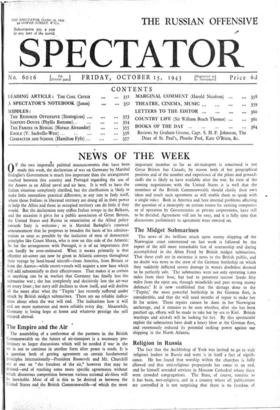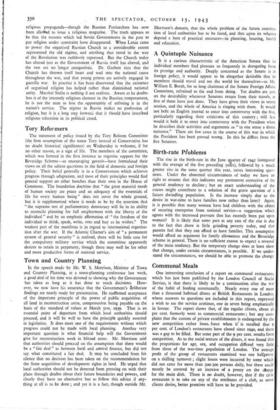Religion in Russia
The fact that the Archbishop of York was invited to go to visit religious leaders in Russia and went is in itself a fact of signifi- cance. He has found that worship within the churches is fully allowed and that anti-religious propaganda has come to an end, and he himself attended services in Moscow Cathedral where there were crowded congregations. The State, of course, remains as it has been, non-religious, and in a country where all publications are controlled it is not surprising that there is no freedom of religious propaganda—though the Russian Patriarchate has now been allotted to issue a religious magazine. The truth appears to be that the reasons which led Soviet Governments in the past to put religion under constraint have disappeared. When Lenin came to power the organised Russian Church to a considerable extent represented the old regime, and anything that stood in the way of the Revolution was ruthlessly repressed. But the Church today has altered just as the Government of Russia itself has altered, and the two are no longer antagonistic. Dr. Garbett says that the Church has thrown itself heart and soul into the national cause throughout the war, and that young priests are actively engaged in guerilla war. In practice it has been discovered that the existence of organised religion has helped rather than diminished national unity. Marshal Stalin is nothing if not realistic. Aware as he doubt- less is of the intensely religious element in the Russian. temperament, he is not the man to lose the opportunity of enlisting it in the nation's service. The regime in Russia makes no profession of religion, but it is a long step forward that it should have inscribed religious toleration in its political creed.



























